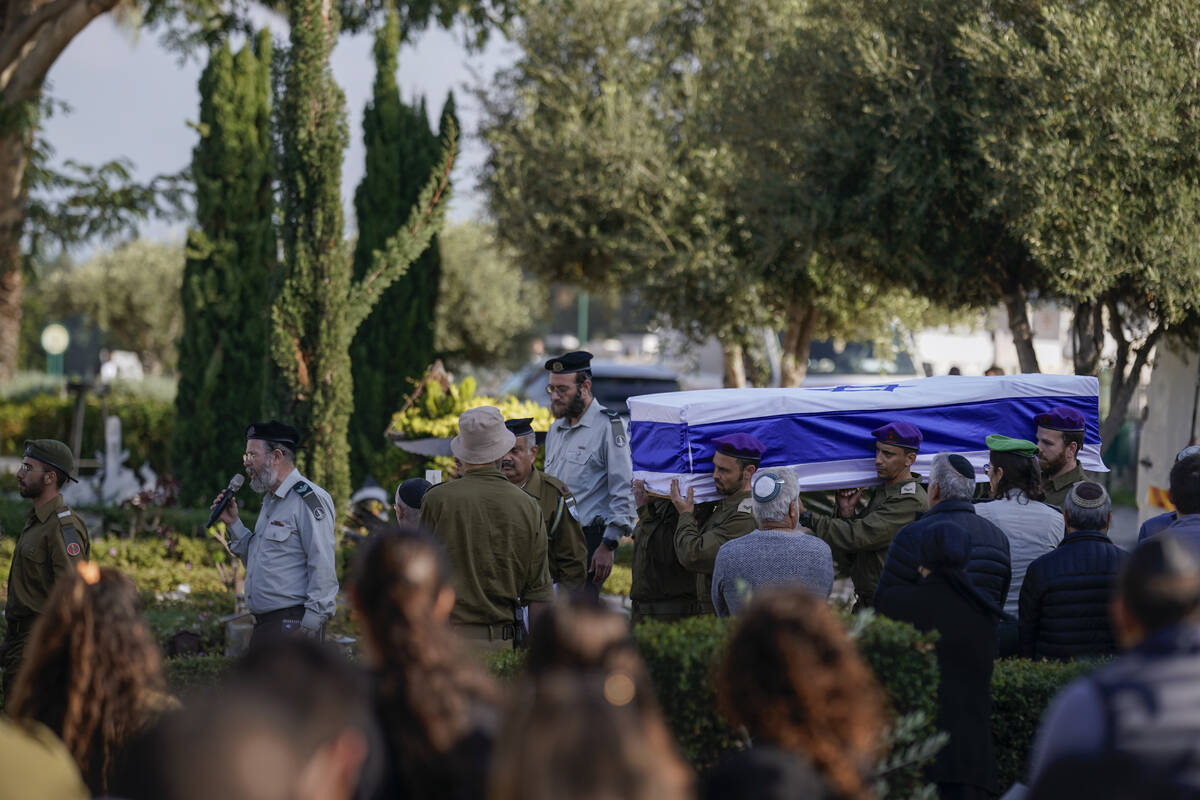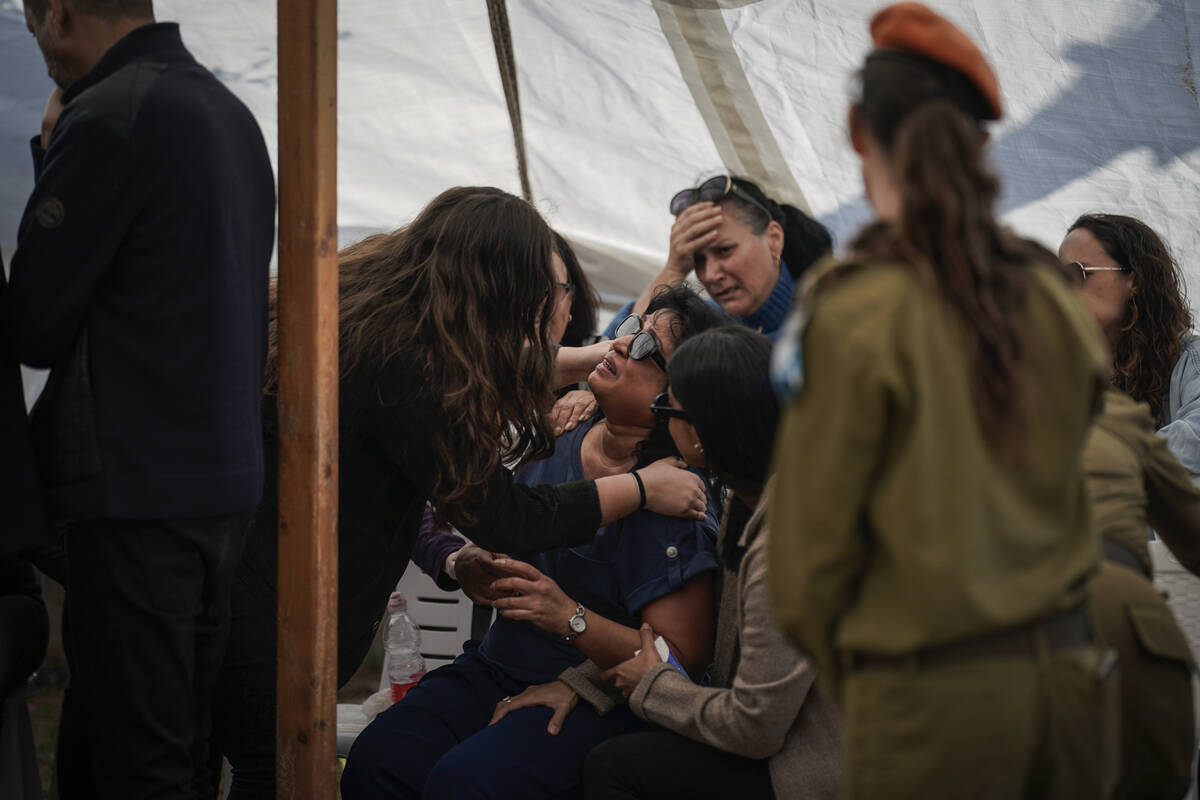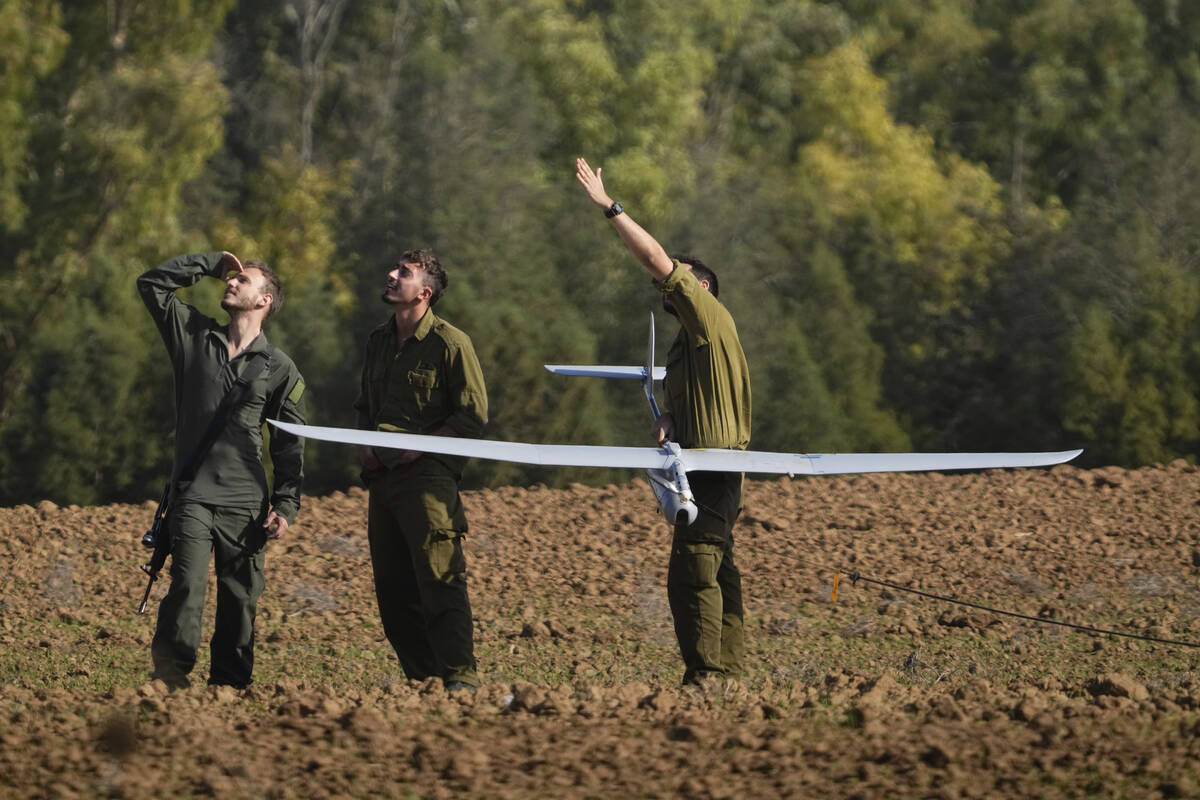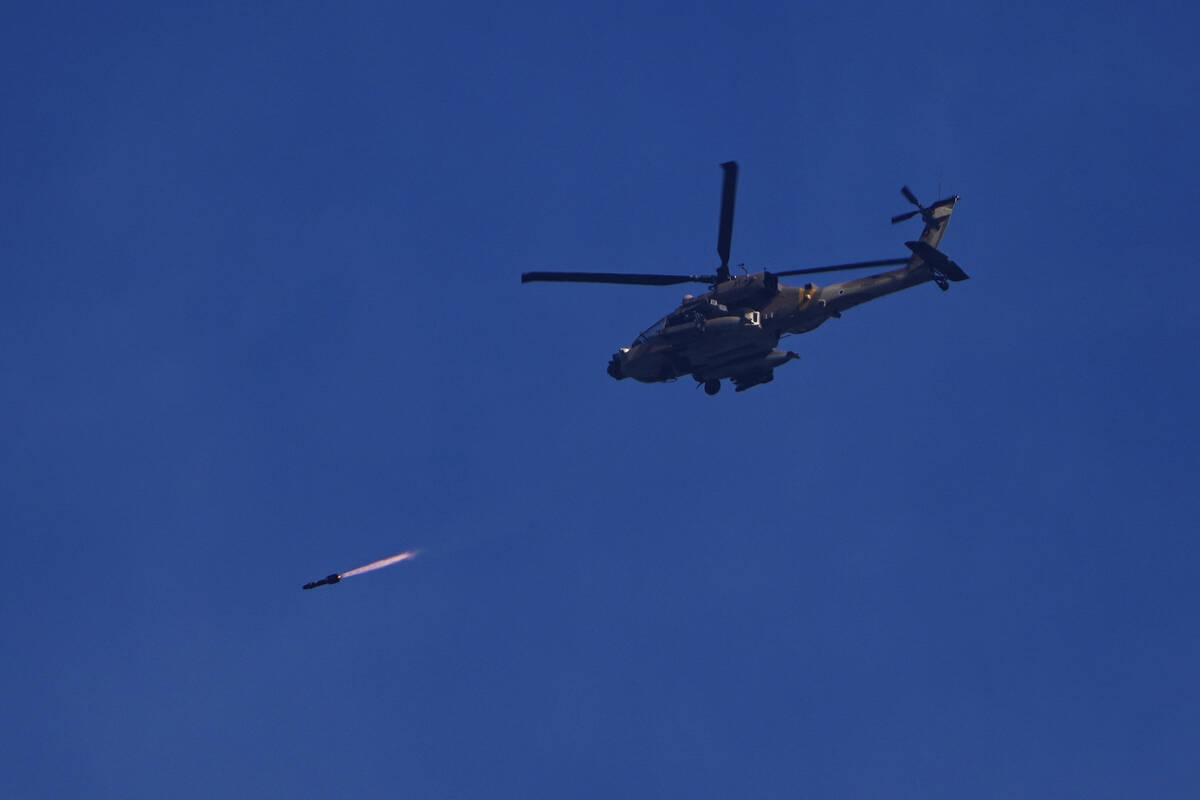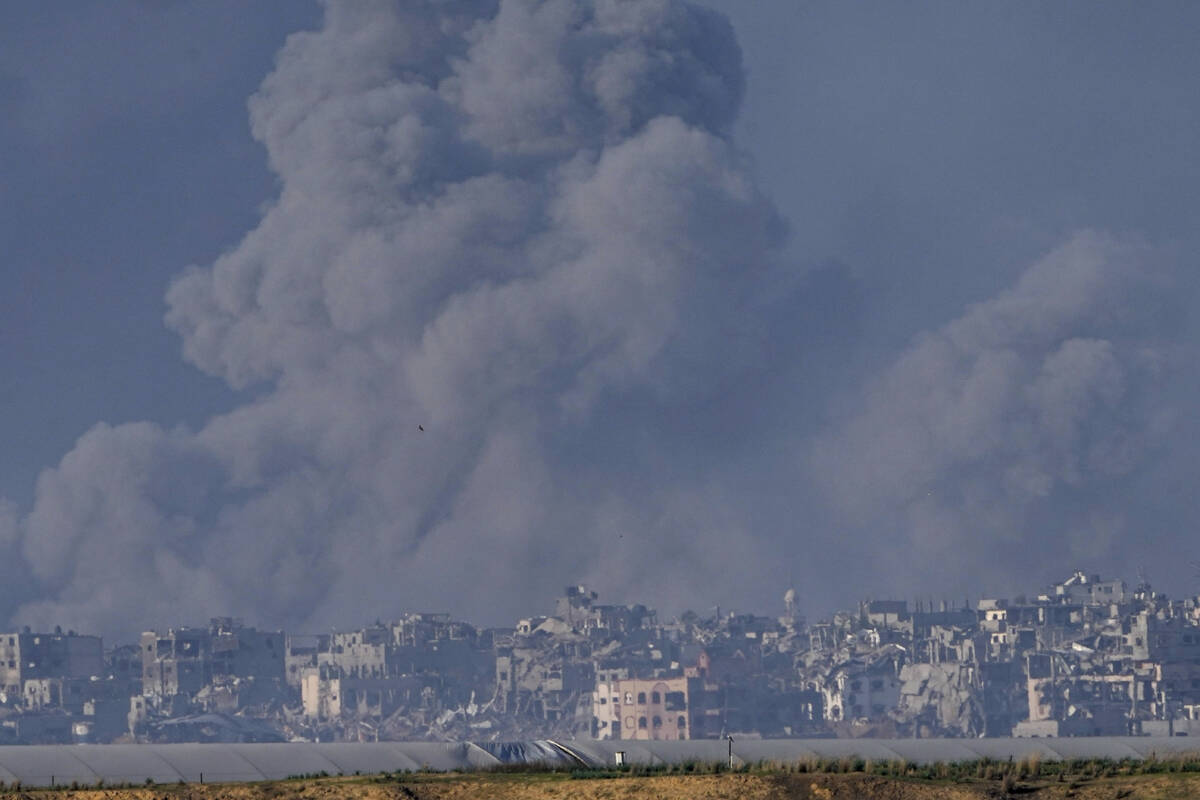Israeli military hits Rafah in southern Gaza twice
RAFAH, Gaza Strip — The Israeli military hit Rafah in southern Gaza twice overnight, residents said, as Israeli forces engaged in fierce urban battles with Hamas terrorists.
United Nations officials warned there are no safe places left in the territory.
Israel says it must crush Hamas’ military capabilities and remove it from power following the Oct. 7 terrorist attack that ignited the war. Troops have pushed into Khan Younis, Gaza’s second-largest city, which Israeli officials have portrayed as Hamas’ center of gravity — something they previously said was in Gaza City and its Shifa Hospital.
Israel has ordered the evacuation of some two dozen southern neighborhoods, rather than the entire region as it did in the north, which the military says shows increased concern for civilians.
Two months into the war, Israel’s retaliatory counteroffensive has triggered renewed international alarm.
U.N. Secretary-General Antonio Guterres used a rarely exercised power to warn the Security Council of an impending “humanitarian catastrophe,” and Arab and Islamic nations called for a vote Friday on a draft Council resolution demanding a humanitarian cease-fire.
Gutteres explicitly cited Article 99 of the U.N. Charter, which allows the secretary-general to bring to the council’s attention any matter that he believes threatens international peace and security. The power has only been used a handful of times in the history of the world body.
The United States appears likely to block any U.N. effort to halt the fighting. Still, U.S. concern over the Israeli military campaign was growing.
On Thursday, Secretary of State Antony Blinken said casualties are too high in a call with Israeli Minister of Strategic Affairs Ron Dermer, a senior State Department official said. Blinken told Dermer that Israel must also do more to allow humanitarian aid into Gaza. The official spoke on condition of anonymity to discuss the private diplomatic discussion.
Speaking at a joint news conference in Washington with visiting British Foreign Secretary David Cameron, Blinken said it remains imperative that Israel put a premium on civilian protection.
The areas where Palestinians can seek safety are rapidly receding. With northern and central Gaza largely isolated and cut off from aid, Palestinians are heading south to Rafah and other areas along the border with Egypt.
Even there, safety has proven elusive, as Israel continues to strike what it says are Hamas targets across the coastal enclave.
A strike late Wednesday leveled a home in Rafah.
The military accused terrorists of firing rockets from open areas near Rafah in the humanitarian zone. It released footage of a strike Wednesday on what it said were launchers positioned outside the town and a few hundred yards from a U.N. warehouse.
Battles in north and south
The military said Thursday that it struck dozens of terrorist targets in Khan Younis, including a tunnel shaft from which fighters had launched an attack. It said two of the attackers were killed.
In the afternoon, a heavy strike near a main intersection in the center of Khan Younis left a large field of rubble.
Hamas and other terrorists killed about 1,200 people, mostly civilians, in the Oct. 7 terrorist attack that triggered the war, and took some 240 people hostage. An estimated 138 hostages remain in Gaza, mostly soldiers and civilian men, after 105 were freed during a cease-fire in late November.
Israel’s campaign has killed more than 17,100 people in Gaza, according to the territory’s Health Ministry. The ministry does not differentiate between civilian and combatant deaths.
A built-up refugee camp inside Khan Younis was the childhood home of Hamas’ top leader in Gaza, Yehya Sinwar, and the group’s military chief, Mohammed Deif, as well as other Hamas leaders — though their current whereabouts are unknown.
Heavy fighting is also still underway in the Jabaliya refugee camp in northern Gaza, even after two months of heavy bombardment and encirclement by ground troops. The military said troops raided a terrorist compound, killing a number of fighters and uncovering a network of tunnels.
The military reported “close-quarter combat” in the nearby district of Shujaiya, including terrorists found in a tunnel under a school.
Israel blames the high civilian death toll on Hamas, accusing it of using civilians as human shields when the terrorists operate in residential areas.
The military says 87 of its soldiers have been killed in the Gaza ground offensive. It also says some 5,000 terrorists have been killed.
An anti-tank missile fired from Lebanon into northern Israel killed an Israeli man, the emergency services said. Hezbollah said its fighters attacked Israeli military posts along the border. Israel responded with intense strikes with helicopters, tanks and artillery, the military said.
Hezbollah and other terrorists in Lebanon have been exchanging fire nearly daily with Israeli forces over the border. Visiting a northern base Thursday, Netanyahu warned that if Hezbollah escalates to all-out war, Israel’s response will be to “turn Beirut and southern Lebanon … into Gaza and Khan Yunis.”
Humanitarian crisis worsens
Rafah, normally home to around 280,000 people, is hosting more than 470,000 who fled from other parts of Gaza.
The U.N. says some 1.87 million people — over 80 percent of the population of 2.3 million — have already fled their homes.
On the other side of the border, Egypt has deployed thousands of troops and erected earthen barriers to prevent any mass influx of refugees. It says an influx would undermine its decades-old peace treaty with Israel, and it doubts Israel will let them back into Gaza.
For days now, aid groups have been able to distribute supplies only in and around Rafah, and mainly just flour and water, the U.N.’s humanitarian aid office said. Access farther north has been cut off by fighting and Israeli forces closing roads.
Gaza has been without electricity since the first week of the war, and hospitals and water treatment plants have been forced to shut down for lack of fuel to operate generators. Israel allows some aid from Egypt but has greatly restricted imports of fuel, saying Hamas diverts it for military purposes.
Prime Minister Benjamin Netanyahu said Wednesday that Israel would allow small deliveries of fuel into the southern Gaza Strip “from time to time” to prevent the spread of disease. The “minimal amount” of fuel will be set by the war cabinet, he said.
———
Chehayeb reported from Beirut.



